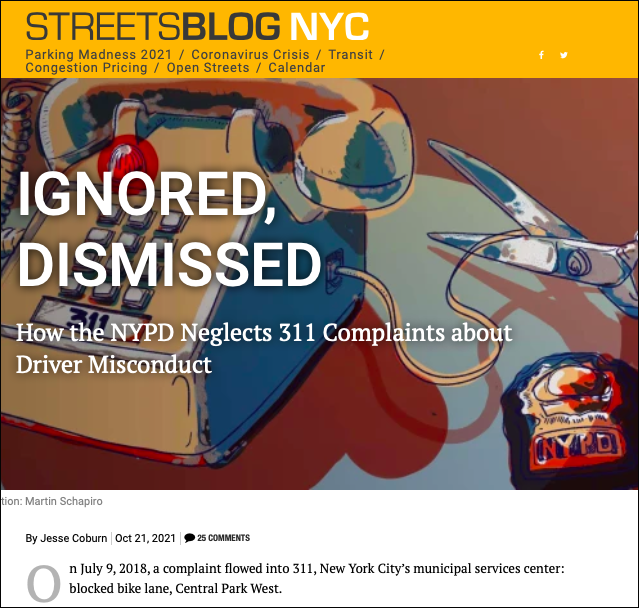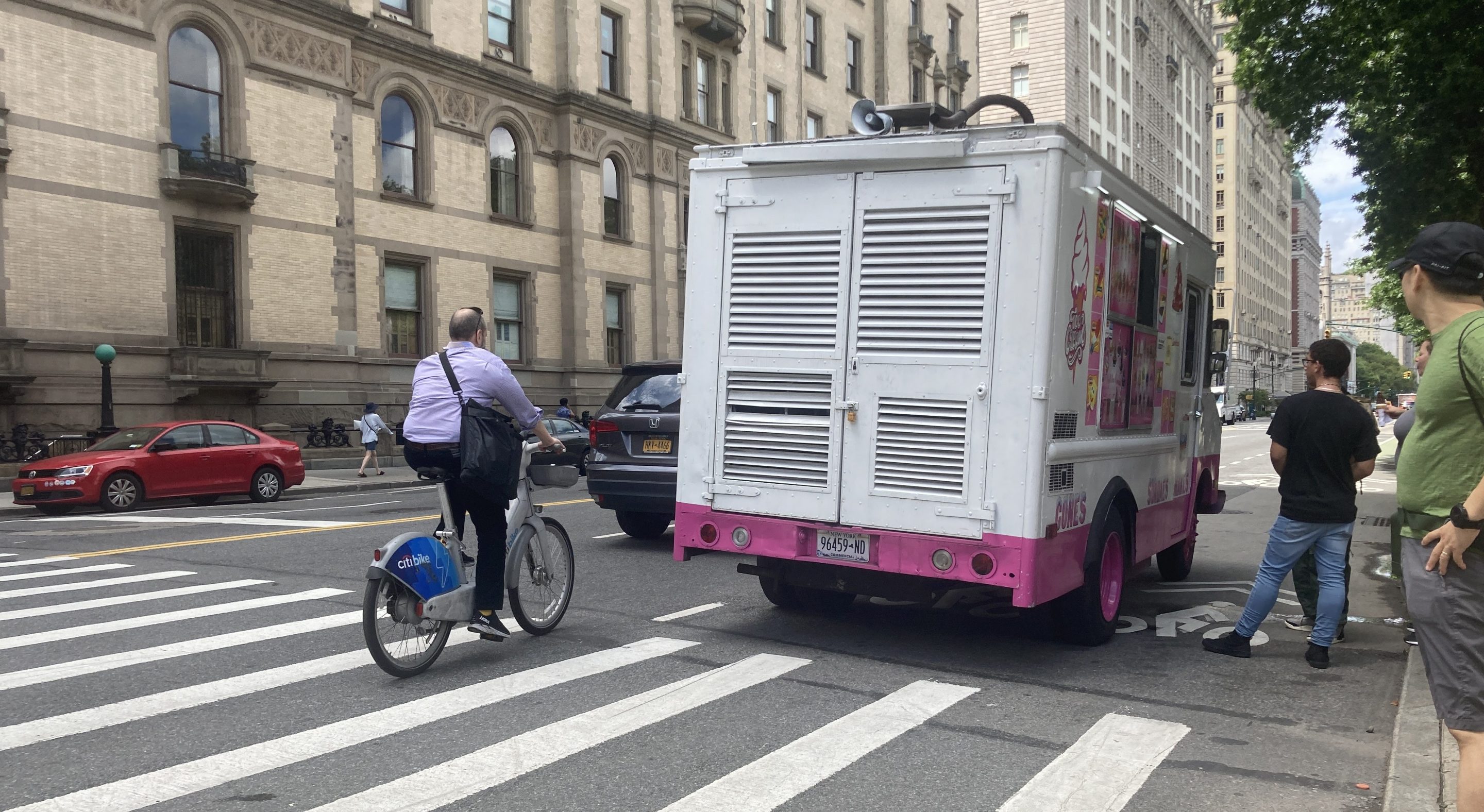Sure, like everyone, I scream for ice cream — but I also scream at it.
That's because Central Park West, near where I live on the Upper West Side, is constantly being blocked by a fleet of trucks from a company called New York Ice Cream.
As the Upper West Side Rag recently reported, nothing is being done about it, either.
I set out to change that — and found it's a Sisyphean battle that no one person should be forced to wage.
But here's why it's so important: These ice cream trucks consistently block the protected bike lane — a lane that was created specifically to protect cyclists from having to veer into traffic to avoid double-parked cars. And it was created specifically because that's exactly how Australian cylist Madison Jane Lyden was killed in 2018. In addition, the four-lane design of Central Park West encourages speeding — according to the city's own stats, the lone speed camera at CPW and 97th Street caught 17,673 drivers going at least 11 miles over the speed limit in just one year. That equates to an average of nearly 70 speeders per day (the cameras were not on at night and on weekends at that point).
Cyclists are sick of these treat-selling tricksters.
“I get rerouted into the street with cars all the time,” said Len Jones, 72, who frequently uses the Central Park West bike lane.
Hoping to help cyclists like Jones, I ventured to one of the ice cream roadblocks on the second day of summer. Sure enough, I spotted one truck whose driver had parked right into the unprotected "protected" bike lane at 81st Street (clearly the $5-per-cone price isn't this guy's only crime).
I asked him why he was parked illegally and told him what he was doing was unsafe. He disagreed.
“My customers are safe, and the bikers are safe, too,” he said, though cyclists were veering into traffic or trying to squeeze between his truck and the curb, where a line of customers was ordering.
He admitted that he "sometimes" gets tickets for his illegal and dangerous parking, but not so many as to tilt the scales on his profit-and-loss sheet.

So I decided to do something: At 1:45 p.m., I called 311 to report his illegal parking. After the seven-minute call, I waited by the truck. As a Streetsblog reader, of course I was aware how rarely police respond to traffic-related 311 calls. But to my surprise, at 2:09, two officers rolled up in a squad car. The ice cream vendor grumbled and drove away. The officers had not issued a ticket — so I wondered: what will stop this frozen freak from coming back?
So I hung around the neighborhood — and sure enough, 45 minutes later, I spotted the same ice cream truck, license plate 96422 ND, at CPW at 67th Street in the bike lane again. He spotted me and headed back uptown, and I caught him again — this time double-parked atop a painted bike lane on W. 77th Street just west of CPW.
“I need you to stop following me; I'm going to fuck you up,” he said in a tone that reminded me of Streetsblog's prior run-in with an angry ice cream man. So I headed home, the day's vigilante work completed. (New York Ice Cream could not be reached for comment, as there is no phone number on the company website and no one has yet responded to an email.)
There are currently at least four of these ice cream trucks obstructing the Central Park West protected bike lane, forcing dozens of bikers per minute into traffic. These are the same trucks that routinely block pedestrian signals up and down 5th avenue and Midtown. pic.twitter.com/2KLjswdtT8
— rbellinger (@rob_bellinger) June 25, 2022
I know that these ice cream trucks have been a problem since the bike lane itself was built, so I returned to Central Park West on July 10. This time, I found three ice cream trucks on the bike lane at three locations.
Once again, I called 311 at 3:41 p.m., and it took 15 minutes to log all three complaints. Eight minutes later, a patrol vehicle rolled up the first truck, at W. 72nd Street. As they approached the ice cream vehicles many bikers desperately pleaded with the cops to finally do something about the illegally parked iceboxes. Instead, the officers only gestured to the ice cream man to park across the street, which he did. The same thing happened a few minutes later at 81st Street, and again, the vendor complied. And at the third location, at W. 67th Street, the ice cream truck had already left by the time cops arrived.
So you're welcome, I guess. But the whole thing still doesn't make sense to me. Why must these public space hogs park on the bike lane when they could easily park on the other side of the street, where there is no bike lane and they wouldn't obstruct traffic?
And here's another thing that doesn't make sense to a humble junior reporter, however promising his future: why do regular people like me have to go through such efforts — multiple 311 calls, chasing down ice cream trucks, following up on police response, all at some personal risk — just to get ice cream men to follow basic traffic safety laws?
We shouldn't have to be Batman, you know.






